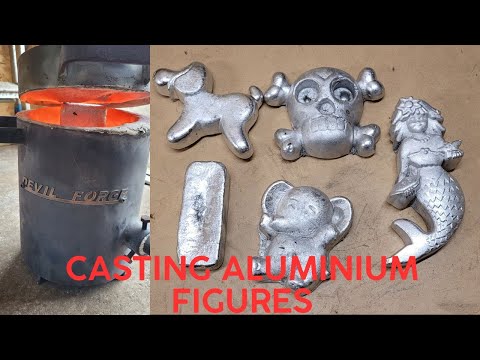More About Stahl Specialty Company
More About Stahl Specialty Company
Blog Article
How Stahl Specialty Company can Save You Time, Stress, and Money.
Table of ContentsNot known Factual Statements About Stahl Specialty Company Our Stahl Specialty Company StatementsThe Ultimate Guide To Stahl Specialty CompanyAll about Stahl Specialty CompanyThe 15-Second Trick For Stahl Specialty Company
There are several small differences in between wrought and cast aluminum alloys, such as that cast alloys can have a lot more substantial amounts of various other metals than functioned alloys. However one of the most notable distinction in between these alloys is the construction procedure whereby they will most likely to deliver the end product. Other than some surface area treatments, cast alloys will exit their mold and mildew in virtually the exact solid type wanted, whereas functioned alloys will go through several modifications while in their solid state.If you assume that a wrought alloy may be the best for your job, have a look at several of our articles that clarify even more regarding details functioned alloys, such as Alloy 6061 and Alloy 6063. On the other hand, if you believe a cast alloy would be better for you, you can learn more about some actors alloys in our Alloy 380 and Alloy 383 write-ups (coming quickly).

Having the experience and industry expertise to engineer your spreadings for ideal manufacturing and high quality end results will certainly streamline the job. Making aluminum spreading requires a complex collection of processes to achieve the appropriate outcomes. When picking a new light weight aluminum shop to companion with, guarantee they have extensive market experience and are knowledgeable about all facets of the light weight aluminum spreading process: layout, manufacturing, product evaluation, and item testing.
The 6-Minute Rule for Stahl Specialty Company
The foundry ought to likewise have a tested track record of supplying extraordinary products that fulfill or go beyond consumer assumptions. Quality control ought to likewise go to the top of your checklist when picking a light weight aluminum foundry. By working with a qualified factory who follows the standards for quality assurance, you can secure the honesty of your item and guarantee it fulfills your requirements.
By choosing a business that supplies solutions that meet or surpass your product needs, you can be certain that your project will certainly be completed with the utmost accuracy and performance. Different components need various manufacturing techniques to cast light weight aluminum, such as sand spreading or die casting.

Die casting is the name provided to the process of developing complex metal elements through use mold and mildews of the element, also called passes away. The process uses non-ferrous steels which do not contain iron, such as light weight aluminum, zinc and magnesium, due to the preferable properties of the steels such as reduced weight, higher conductivity, non-magnetic conductivity and resistance to deterioration.
Stahl Specialty Company Fundamentals Explained
Pass away casting manufacturing is quickly, making high production levels of elements very easy. It produces even more components than any type of various other process, with a high level of accuracy and repeatability. To get more information about die casting and die casting products utilized at the same time, kept reading. There are 3 sub-processes that fall under the classification of die spreading: gravity pass away casting (or permanent mold casting), low-pressure die casting and high-pressure die casting.
After the purity of the alloy is tested, passes away are produced. To prepare the dies for spreading, it is vital that the dies are tidy, so that no deposit from previous productions remain.
The pure steel, likewise called ingot, is included in the heating system and kept at the molten temperature of the Visit Website metal, which is after that moved to the injection chamber and infused right into the die. The pressure is after that kept as the metal strengthens - Foundry near me. When the metal strengthens, the cooling process begins
The thicker the wall surface of the component, the longer the cooling time as a result of the quantity of interior steel that also needs to cool. After the element is fully cooled, the die cuts in half open and an ejection system presses the component out. Adhering to the ejection, the die is closed for the next shot cycle.
Indicators on Stahl Specialty Company You Need To Know

Today, top suppliers use x-ray screening to see the whole interior of parts without cutting right into them. To get to the ended up product, there are three primary alloys utilized as die casting product to choose from: zinc, light weight aluminum and magnesium.
Zinc is one of the most used alloys for die casting due to its reduced price of raw materials. Its rust resistance additionally permits the components to be long long-term, and it is one of the more castable alloys due to its reduced melting point - Aluminum Castings.
How Stahl Specialty Company can Save You Time, Stress, and Money.
As mentioned, this alloy is just one of one of the most generally used, yet manufactures will, at times, choose aluminum over zinc due to aluminum's manufacturing benefits. Light weight aluminum is highly economical and one of the more versatile alloys. Aluminum is used for a variety of various items and industries anything from window structures to aerospace materials.
Report this page